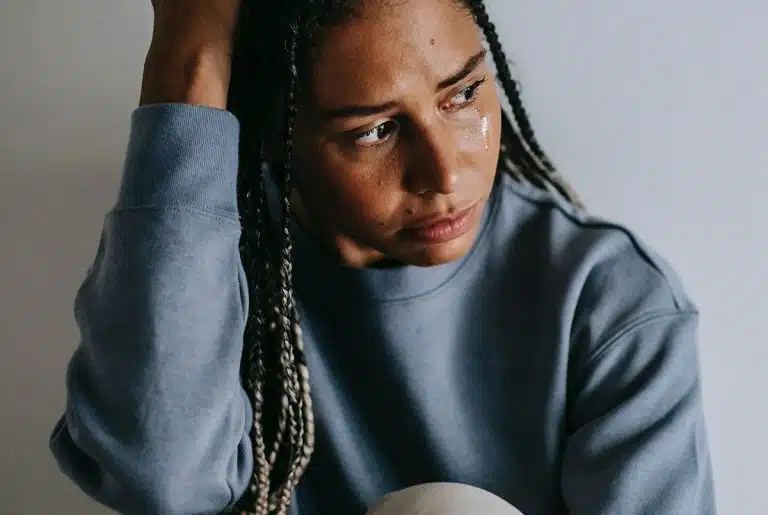Infidelity has always been painful. But in today’s hyper-connected world, it’s also increasingly public. What was once a private crisis between two people can now become the subject of viral content, internet commentary, and armchair analysis – all in a matter of hours.
While cheating is not a new phenomenon, the experience of discovering it, surviving it, and recovering from it has changed dramatically. Social media hasn’t just altered how affairs are exposed – it’s reshaped how betrayal is processed, performed, and perceived.
When the private becomes public
The boundaries between public and private moments in relationships have never been more blurred. Declarations of love, public proposals, reconciliations, even moments of fury or break-up, are now documented and shared. Our digital footprints can reveal far more than we intend – and once something is online, it’s impossible to fully control.
If you’re having an affair and think you’re covering your tracks, your socials might tell a different story. Even if you’re careful, the person you’re involved with might not be. A tagged photo here, a recurring name there, and suddenly there’s a trail. For those who suspect something’s going on, it’s easier than ever to do their own forensic investigation – sometimes obsessively so. And once a suspicion takes hold, every post can become evidence.
Loss of control and the cost of going viral
When something private becomes public, the crisis can take on a life of its own. Instead of focusing on the people directly involved, attention shifts to managing the audience – their comments, their reactions, and the media storm that follows. The betrayed partner, already in pain, can feel humiliated not just personally, but publicly.
At Relationships Australia NSW, we often see the ripple effect: friends and family weighing in, colleagues forming opinions, and strangers assigning blame. The commentary is often binary – someone’s right, someone’s wrong – when in reality, relationships are rarely that black and white.
Sometimes, the temptation is to respond publicly – to explain, defend, or counter what’s being said. But this rarely leads to healing. In fact, it often deepens the damage and makes repair harder.
The invisible victims
When affairs are exposed online, there’s often a rush of sympathy and outrage directed at the people involved. But amidst the noise, real individuals – including children, partners, friends and extended family – are left to process the fallout in private.
Even well-meaning responses can unintentionally do harm. What starts as support can quickly spiral into speculation or pressure to act in a certain way. For those affected, it can feel like their pain is being co-opted for public consumption.
Repair is still possible
It’s easy to assume that if your partner cheats, the relationship is over. But in practice, that’s not always the case. Many people choose to stay – because of love, shared history, children, or a desire to rebuild. It’s possible to come back from infidelity and in some cases, relationships become stronger and more resilient.
But recovery takes time, commitment, and honesty. And it requires privacy – the space to think clearly, to grieve, to talk, and to decide what comes next. That’s nearly impossible to do when the whole world is watching.
Navigating relationships in a digital world
If social media has changed the landscape of love and betrayal, it also demands new boundaries – and greater self-awareness. Here are some ways to protect your relationship, and yourself, in a hyper-connected world:
- Talk about your online boundaries. Be clear about how you want to present your relationship online. Do you both agree? Who posts what, and when? These expectations can shift over time – it’s worth revisiting regularly.
- Be mindful of your own social media habits. Consider your engagement in social media. Posts are designed to catch your eye and demand a response, sometimes an emotive one. Before commenting, sharing or weighing in, ask yourself: Where is it useful to wade in, and where is it not? Whose interests is it serving for you to comment?
- Keep relationship crises offline. When emotions are running high, it’s tempting to vent online. But once it’s out there, you can’t take it back. Public declarations may feel satisfying in the moment, but they can damage any chance of recovery – and draw others into something deeply personal.
- Find a private space for the hard conversations. If your relationship is under strain, create a private space to process what’s happening. Talk to a trusted friend, seek counselling, or take time to yourself. This gives you the chance to know your own mind, make good decisions in everyone’s interests, and protect any future options you are still hoping to have.
Social media has blurred the line between connection and performance. It can amplify joy and devastation. But when it comes to love, trust and betrayal, the most meaningful conversations still happen away from the screen.
Thinking about dating after separation? Our experienced counsellors can help you explore your readiness, work through emotions, and support your wellbeing as you navigate new relationships. Find out more about our individual counselling services.
Related Services & Workshops

Group Workshops.Individuals.Trauma
Women’s Choice and Change
This program is a free domestic violence support group for women. Our family therapists provide a safe and caring space to share and learn from others who understand your experiences. Skills and strategies are provided to help you move forward with your life.

Counselling.Individuals.Trauma
Domestic Violence Counselling
We all have the right to feel safe. Taking the first steps to speak to someone about domestic and family violence can be conflicting and overwhelming. At Relationships Australia NSW, we provide compassionate, understanding, and confidential domestic violence support for victims.

Tailored Services.Individuals.Domestic Violence
Taking Responsibility – Men’s Behaviour Change Program
An intensive program involving casework support and an 18-week group program to help men make choices that match their values and intentions to develop safe and respectful relationships.






